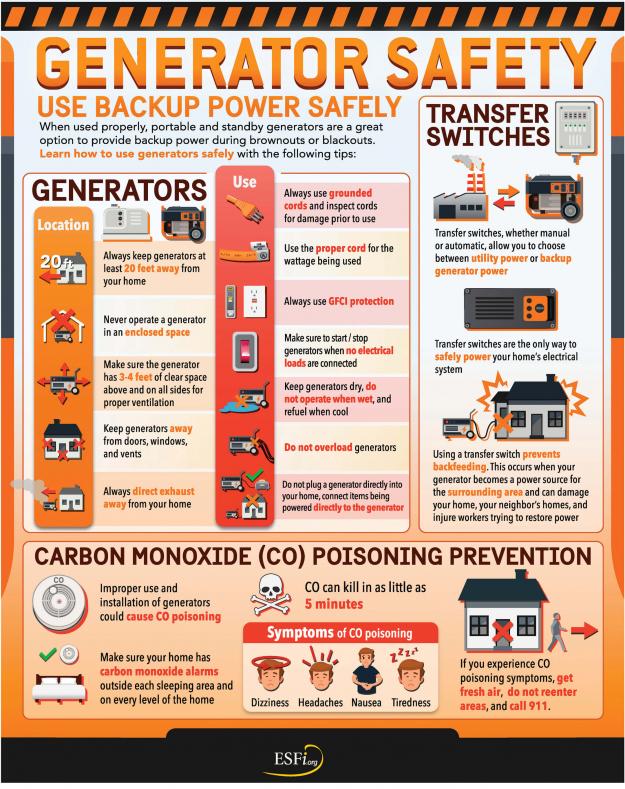Portable generators can provide a good, temporary source of power during electrical outages but can become deadly if improperly installed or operated.
Taking a few simple precautions can keep you and your family safe from the dangers of carbon monoxide poisoning and electric shock resulting from the improper use of portable generators.
Generator Safety Tips
- ESFI strongly recommends that a licensed electrician install home generators to ensure they meet all local electrical codes.
- Do not connect generators directly to the household wiring without an appropriate transfer switch installed. Power from generators connected directly to household wiring can backfeed along power lines and electrocute anyone coming in contact with them, including utility lineworkers making repairs.
- Make sure your generator is properly grounded. Use a ground fault circuit interrupter (GFCI) to prevent electrocutions and electrical shock injuries.
- Always keep generators at least 20 feet away from your home.
- Never operate a generator in an enclosed space.
- Always direct exhaust away from your home.
- Make sure to start and stop generators when no electrical loads are connected.
- Keep generators dry, do not operate when wet, and refuel when cool.
- Do not overload generators.

